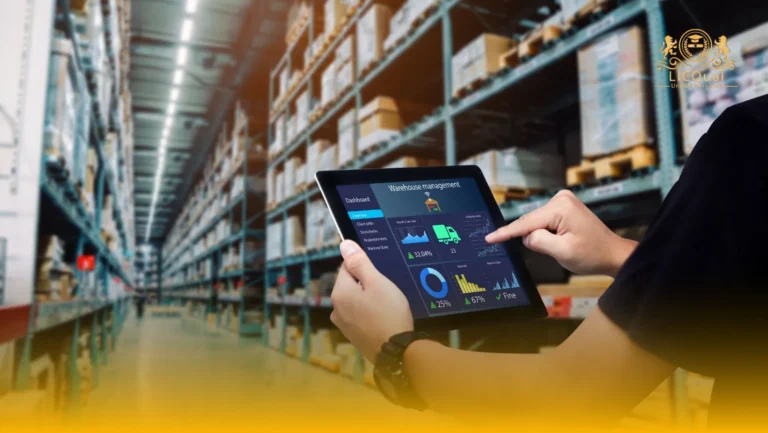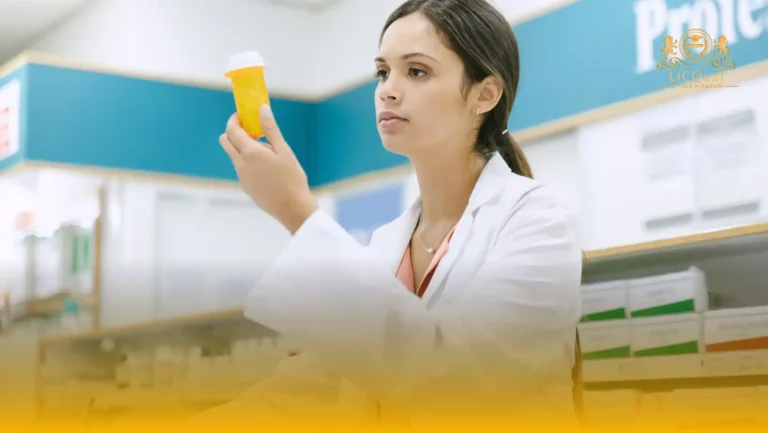In today’s global food industry, processors and manufacturers carry a critical responsibility in ensuring the safety and integrity of food products before they reach consumers. The LICQual Certificate in HACCP for Processors and Manufacturers is a prestigious, internationally recognized qualification tailored specifically for professionals involved in food production and processing.
This comprehensive program is built on the foundational principles of Hazard Analysis and Critical Control Points (HACCP), equipping participants with the tools and strategies necessary to identify potential hazards, manage risks, and maintain consistent food safety standards throughout the manufacturing process. Whether you operate in small-scale production or large-scale industrial environments, this certification is a powerful asset for ensuring regulatory compliance and product excellence.
The LICQual Certificate in HACCP for Processors and Manufacturers focuses on the application of HACCP systems in food processing and manufacturing settings. Participants will gain in-depth knowledge of hazard analysis, critical control points (CCPs), prerequisite programs (PRPs), verification and validation procedures, and effective documentation practices tailored to manufacturing operations. The course is designed to align with global food safety guidelines, including Codex Alimentarius, ISO 22000, and GFSI-recognized schemes.
Learners will explore real-world challenges related to raw material sourcing, equipment sanitation, production line controls, packaging, labeling, and traceability. Emphasis is placed on practical implementation—providing participants with actionable insights to strengthen their existing food safety systems, enhance audit readiness, and reduce risks across every stage of the supply chain.
Ideal for production managers, quality assurance personnel, food safety officers, and technical staff in the processing sector, this course ensures that professionals are fully prepared to meet international regulatory requirements and industry expectations. On successful completion, participants will not only possess a renewed confidence in their HACCP skills but also contribute to building a safer, more efficient food production environment.
Course Overview
Qualification Title
LICQual Certificate in HACCP for Processors and Manufacturers
Total Units
6
Total Credits
18
GLH
72
Qualification #
LICQ2200086
Qualification Specification
To enroll in the LICQual Certificate in HACCP for Processors and Manufacturers, applicants must meet the following criteria:
|
Qualification# |
Unit Title |
Credits |
GLH |
|---|---|---|---|
|
LICQ2200086-1 |
Introduction to HACCP and Food Safety Management Systems |
3 |
12 |
|
LICQ2200086-2 |
Identifying and Assessing Food Safety Hazards in Processing and Manufacturing |
3 |
12 |
|
LICQ2200086-3 |
Critical Control Points (CCPs) and Monitoring Procedures |
3 |
12 |
|
LICQ2200086-4 |
Establishing Corrective Actions and Preventive Measures in HACCP |
3 |
12 |
|
LICQ2200086-5 |
HACCP Documentation, Record Keeping, and Traceability |
3 |
12 |
|
LICQ2200086-6 |
HACCP Audits, Verification, and Continuous Improvement |
3 |
12 |
By the end of this course, learners will be able to:
Introduction to HACCP and Food Safety Management Systems
- Demonstrate a clear understanding of HACCP principles and their role in food safety management systems.
- Explain how HACCP integrates with food safety management systems to prevent food safety hazards in the processing and manufacturing sectors.
- Articulate the objectives and benefits of implementing a HACCP system in food production environments.
Identifying and Assessing Food Safety Hazards in Processing and Manufacturing
- Identify biological, chemical, and physical food safety hazards at various stages of the food processing and manufacturing process.
- Conduct a thorough hazard analysis to assess risks in food production environments.
- Apply appropriate hazard identification techniques to evaluate the potential impact of food safety hazards on product quality and consumer health.
Critical Control Points (CCPs) and Monitoring Procedures
- Identify Critical Control Points (CCPs) in food production and processing systems and explain their importance in preventing contamination.
- Develop and implement effective monitoring procedures to ensure that CCPs are properly controlled.
- Establish critical limits for CCPs and ensure the system’s ability to control food safety hazards in line with HACCP guidelines.
Establishing Corrective Actions and Preventive Measures in HACCP
- Design and implement corrective actions when deviations occur at identified CCPs to maintain food safety.
- Develop preventive measures to minimize or eliminate the risk of food safety hazards during the production process.
- Understand the importance of proactive measures in HACCP to ensure consistent food safety and high-quality standards.
HACCP Documentation, Record Keeping, and Traceability
- Establish accurate documentation and record-keeping practices to ensure compliance with HACCP guidelines.
- Demonstrate the importance of traceability in food production to enhance product accountability and transparency.
- Develop and maintain detailed records for all HACCP activities, including hazard assessments, monitoring results, and corrective actions.
HACCP Audits, Verification, and Continuous Improvement
- Conduct internal HACCP audits to evaluate the effectiveness of food safety management systems.
- Implement verification procedures to confirm that HACCP plans are functioning properly and meeting regulatory requirements.
- Develop and apply continuous improvement strategies to enhance HACCP systems, address emerging risks, and adapt to changing food safety regulations.
This diploma is ideal for:
Assessment and Verification
All units within this qualification are subject to internal assessment by the approved centre and external verification by LICQual. The qualification follows a criterion-referenced assessment approach, ensuring that learners meet all specified learning outcomes.
To achieve a ‘Pass’ in any unit, learners must provide valid, sufficient, and authentic evidence demonstrating their attainment of all learning outcomes and compliance with the prescribed assessment criteria. The Assessor is responsible for evaluating the evidence and determining whether the learner has successfully met the required standards.
Assessors must maintain a clear and comprehensive audit trail, documenting the basis for their assessment decisions to ensure transparency, consistency, and compliance with quality assurance requirements.







